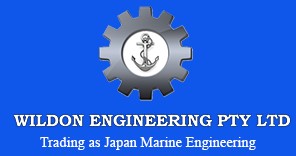Causes of Failure in Oil Purifiers and How to Address Them
Blog | March 29th, 2022
Ships can only operate optimally if they utilise well-maintained machines and components. One way to ensure the effectiveness of their machines and components is through lubrication.
Lubrication is a process wherein a lubricating oil is applied to surfaces. This process is vital to machines and components as it can reduce heat and lessen friction. It can also neutralise acid combustion of by-products, prevent scuffing, and contain any wear and tear possibilities between surfaces. Now, to ensure that the lubricating oil will be effective, it must be processed by oil purifiers first.
Oil purifiers remove dissolved water, fuel, solvents, and other impurities from the lubricating oil. If your ship, however, manifests scale formation, high exhaust temperature, and others, your oil purifiers may have already failed. Here are some causes of failure in oil purifiers and how to address them.
Faulty Breaker
One possible cause of oil purifiers failure is the presence of a faulty breaker. The breaker becomes faulty if it cannot remain at the ON position all the time. To resolve this issue, you may want to operate the oil purifier with a standby pump. You must likewise remove the faulty breaker and replace it with a new one.
Low Bowl Speed
Another potential cause of faulty oil purifiers is low bowl speed. Oil purifiers with low bowl speed cannot achieve their intended revolutions per minute or RPM. This problem may be caused by slipping belts, worn-out gear systems, damaged bearings, and worn out coupling pads or centrifugal clutch. The low bowl speed issue, fortunately, can be addressed through spraying the belt dresser and cleaning the belt. Checking and replacing the gear and coupling pads can also resolve this problem.
Low Feed Pressure
A feed pump that fails to carry out its functions can easily reduce the oil purifiers’ feed pressure. Low feed pressure can also happen due to fouled heater or clogged pump filter. To verify the presence of this problem, you may want to check the pump pressure and inlet pressure. If the purifier’s pressure is low but your pump’s pressure is alright, you must clean your clogged heater.
High Current
The feed pump of your oil purifier may have some damages if it continuously draws a high current. As a result, it can trip the breaker and cause more issues. To solve this problem, you must isolate the pump and subsequently rotate the shaft. You must also verify if your electrical circuit has any possible fault.
Dirty Heater Surface
Another potential cause of a faulty oil purifier is the dirty heater surface. A dirty heater surface can easily reduce the efficiency of the heater. Hence, it forces you to increase the temperature setting to retain the desired temperature. It will then hinder the oil purifier feed from operating. To avoid this problem, you must clean the heater regularly. You must also check the steam line and steam controller.
To attain quality oil purifiers for your marine applications, you must consider Mitsubishi Selfjectors. These oil purifiers are recommended for such applications thanks to their effective fine particulate removal abilities and high output. They also have stellar purification performance, enabling them to purify fuel oils, lubrication oils, and mineral oils. If you want one, you can call us at Wildon Engineering.
References:
https://marineinbox.com/marine-exams/troubleshootings-for-purifiers
https://marinersgalaxy.com/purifier-problems-6-most-common-and-their-solution
Optimized by NetwizardSEO.com.au
Recent Posts
- Turbochargers Supply from Japan Marine: Wildon Engineering’s Excellence in Global Shipping
- Mitsubishi VOS Ballast Water Treatment System: Next-Generation Marine Environmental Solutions
- Yanmar Marine Compressors: Reliable Power Systems for Commercial Vessels
- Water-Lubricated Stern Tube Bearings Explained: How EVR Technology Supports Marine Propulsion
- YANMAR Auxiliary Generator Engine Parts for Commercial Vessels
- Fluid Control Systems: Innovations in Marine Applications
- Yanmar Diesel Generators Australian Distributor: Power for Shipping & Marine Operations
- Navigation & Communication Equipment: Essential Tools for Safe Voyages
- Stern Tube Seals: Preventing Leaks & Maintaining Vessel Integrity
- Innovative Cathodic Protection Technologies for Maritime Industries
